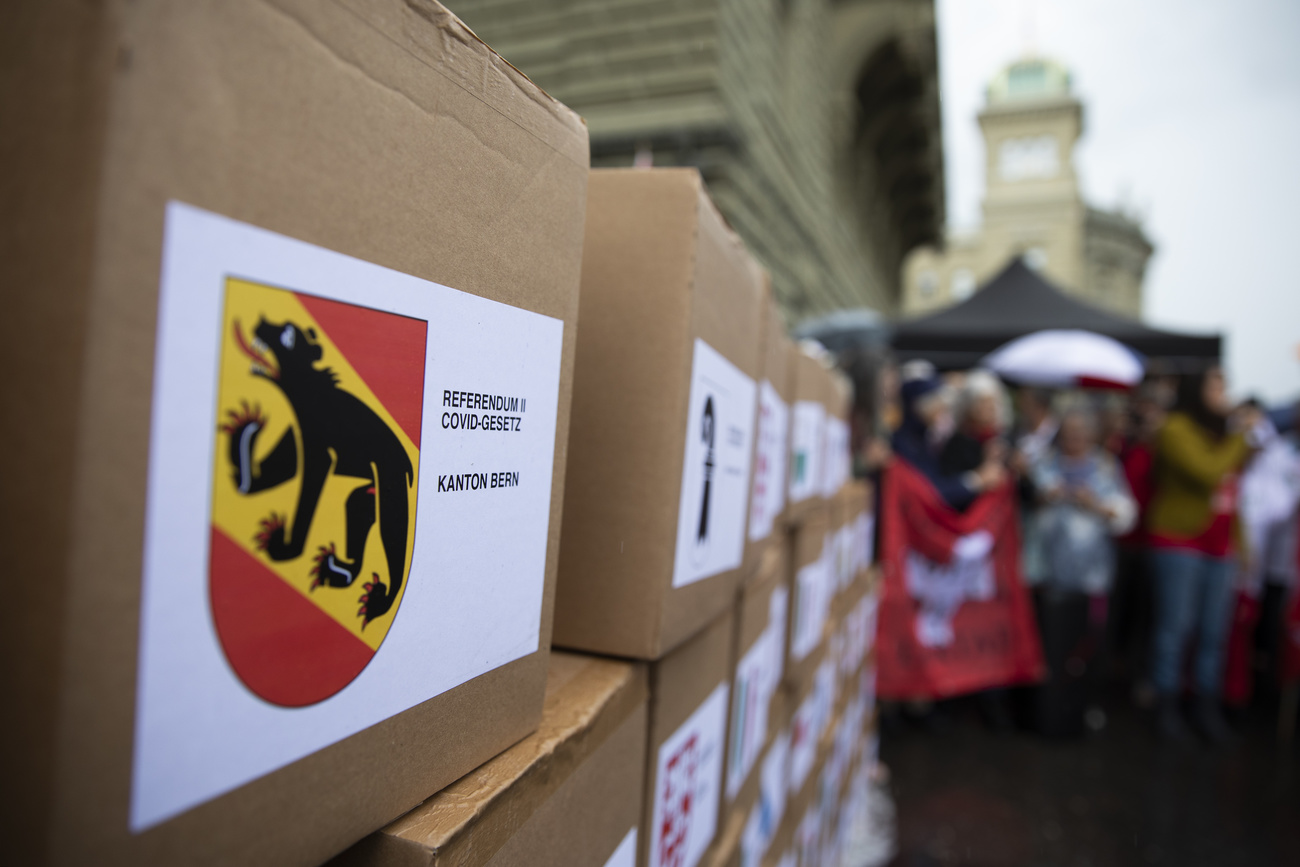
Swiss Covid law set for second public vote

Opponents have handed in signatures to force another vote challenging the law underpinning many of the government’s coronavirus measures.
Less than a month ago, 60.2% of the population approved the Covid-19 law, which politicians adopted last September to deal with the financial and logistical fallout from the pandemic.
On Thursday, opponents handed in signatures to challenge the law again – this time, the version of the legislation as it was revised by Parliament in March this year.
While the argument of creeping government power remains, the main target this time around is the Covid certificate, issued to those who have been vaccinated, tested, or recovered from the coronavirus.

More
Covid-19 law wins endorsement from voters
The opponents claim that the certificate – which will be required for international travel, for entry to mass events (at least for now), and possibly for other sociocultural activities – discriminates against unvaccinated people.
Making participation in society dependent on whether or not you are vaccinated is unconstitutional, reprehensible, and unjustified by any imminent threat, the campaigners say.
Quick collecting
Like last time, the campaign also has tones of a general protest against the government’s coronavirus policy, with the campaigners saying the executive body has taken on too much power and “wasted over CHF130 billion [$140.6 billion] of taxpayers’ money”.
The organising committees include a group in favour of the “choice to vaccinate”, a group of coronavirus critics from central Switzerland, and the “Friends of the Constitution” association who were behind the vote in May.
The groups say they managed to collect enough signatures to force a referendum (50,000 are needed) within three weeks, which they claim is a record for Swiss direct democracy. In total, they say they collected some 186,000.
If the signatures are validated by the Federal Chancellery, the referendum will take place on November 28.

More
Anti-government protester march ahead of vote on Covid policy

In compliance with the JTI standards
More: SWI swissinfo.ch certified by the Journalism Trust Initiative






























You can find an overview of ongoing debates with our journalists here . Please join us!
If you want to start a conversation about a topic raised in this article or want to report factual errors, email us at english@swissinfo.ch.